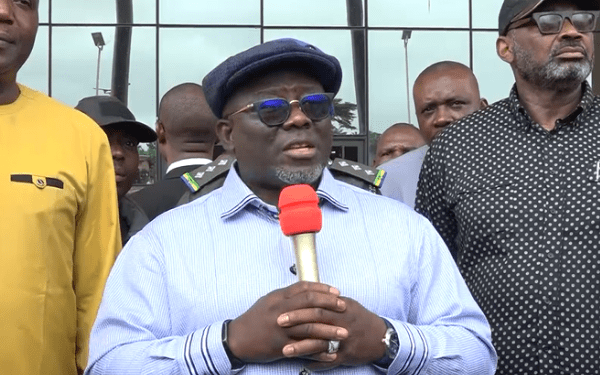Paragraph 1: The Genesis of Conflict
Warri, a bustling oil-rich city in Delta State, Nigeria, was recently marred by a violent clash between Itsekiri and Urhobo youths. The incident, which occurred at the Okere Roundabout, a central location in the city, involved the exchange of gunfire and physical attacks, leaving several individuals injured. The immediate cause of the clash remains unclear, with varying reports suggesting a spontaneous escalation of tensions or a pre-planned confrontation. Regardless of the origin, the incident quickly spiraled into violence, prompting the intervention of police operatives who employed tear gas to disperse the warring factions. This clash is not an isolated event but rather a reflection of deeper historical and socio-political tensions that have intermittently plagued the region.
Paragraph 2: The Governor’s Response and Directive
In response to the escalating violence, Delta State Governor Sheriff Oborevwori issued a stern directive to security operatives, mandating the arrest of anyone found in possession of arms within Warri. This directive, conveyed through a statement released by his Executive Assistant on Security Matters, Udoka Chika-dibie, underscores the governor’s commitment to quelling the unrest and preventing further escalation. The statement strongly cautioned against any attempts to incite ethnic hostilities, emphasizing that the Oborevwori administration would not tolerate such actions within the state. The governor’s directive aims to disarm potential aggressors and send a clear message that violence will not be tolerated.
Paragraph 3: The Legacy of Past Conflicts and the Need for Peace
The governor’s statement further referenced the devastating 1999 Warri Crisis, a prolonged period of inter-ethnic conflict that resulted in significant loss of life and property. The invocation of this historical event serves as a stark reminder of the potential consequences of unchecked ethnic tensions. The governor emphasized the need to learn from the past and avoid a relapse into such violence. This appeal to historical memory underscores the importance of peaceful coexistence and the collective responsibility to prevent a recurrence of such tragic events. The state, still bearing the scars of past conflicts, cannot afford another cycle of violence.
Paragraph 4: Focus on Development, Not Division
Governor Oborevwori’s statement also highlighted the detrimental impact of intra-communal conflict on the state’s development agenda. He emphasized that the focus should be on achieving meaningful progress and development, rather than engaging in self-destructive infighting. This message resonates with the broader need for unity and cooperation to address the numerous challenges facing the state, including poverty, unemployment, and inadequate infrastructure. The governor’s call for peace and development aims to redirect energies towards constructive initiatives that benefit the entire population, rather than squandering resources on conflict resolution.
Paragraph 5: Proactive Security Measures and Deterrence
Beyond the immediate directive to arrest those carrying arms, the governor’s statement indicated that security agents have been instructed to apprehend or neutralize anyone found with weapons. This assertive stance signifies a proactive approach to security, aimed at preventing further violence through both deterrence and decisive action. The governor’s commitment to maintaining peace and order is evident in the strong language employed and the clear instructions given to security forces. This proactive approach seeks to prevent further loss of life and property and create a secure environment for all residents of Warri.
Paragraph 6: The Imperative of Peaceful Coexistence
The recent clash in Warri highlights the fragility of peace and the urgent need for sustained efforts to promote peaceful coexistence among the diverse ethnic groups in the region. The governor’s directive, coupled with the deployment of security forces, serves as a crucial first step in restoring order and preventing further escalation. However, long-term peace and stability will require addressing the underlying socio-economic and political factors that contribute to inter-communal tensions. This necessitates a multi-faceted approach involving dialogue, reconciliation, and inclusive development initiatives that benefit all communities. The pursuit of peace and progress in Warri and Delta State as a whole requires a collective commitment from all stakeholders, including government, community leaders, and the citizens themselves.


